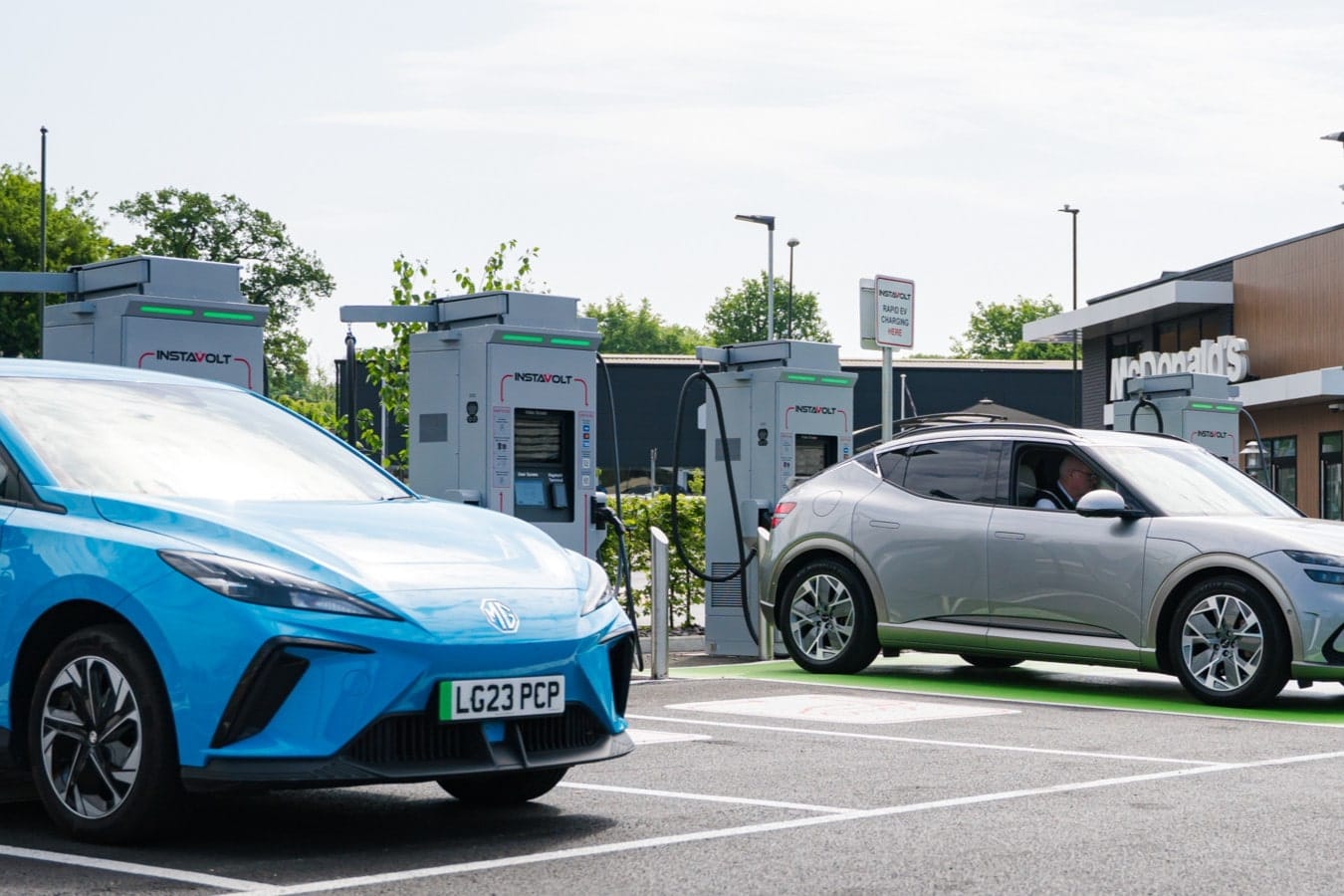Now official: UK government plans to incentivise EVs, but also tax them
Earlier this week, several media outlets reported, based on leaked information, that the UK government planned to allocate an additional £1.3 billion for new electric vehicle subsidies and a further £200 million for charging infrastructure. That is now confirmed, as the UK budget plan was officially presented. That increases the total budget for the “Electric Car Grant” (ECG) introduced in the summer to just under £2 billion as £650 million had already been reserved in the summer for the programme period from mid-2025 to the 2028/2029 financial year.
Specifically, the UK has since subsidised EVs with a list price of up to £37,000 with up to £3,750 per vehicle. The additional £1.3 billion now announced is intended to secure funding until 2030 and initially raise the grant amounts. Details are not yet known. In parallel, companies with charging infrastructure and EV fleets will receive support, and the construction of chargers will become more attractive through tax measures. This applies provided the budget draft passes the remaining parliamentary stages unchanged.
One thing is clear: industry and policymakers in the country face intense pressure. Despite 382,000 new EVs making the UK Europe’s largest market in 2024, the market is not developing at the pace stipulated by the Zero Emission Vehicle (ZEV) mandate. Under this mandate, manufacturers must meet annual sales targets to avoid penalties. This year, they must reach an EV share of 28 per cent. By 2030, that rises steeply to 80 per cent. In 2024, many manufacturers only hit their targets through heavy discounting, which squeezed margins. As a result, the ZEV mandate rules were already relaxed for manufacturers in April 2025.
The increased incentive budget is likely intended as another signal to manufacturers, since, from 2028, consumers will face a new tax on top of the purchase grant, which will erode the benefit over time. The government plans to introduce a pay-per-mile system called Electric Vehicle Excise Duty (eVED), which is expected to raise the average annual cost of owning an EV by £276. Plug-in hybrid owners will also pay, though slightly less, as they are already subject to fuel duty at the pump, which is also set to rise again.
But step by step: the government wants the mileage-based tax for EVs and plug-in hybrids to come into force in 2028, essentially the equivalent of fuel duty on petrol and diesel cars. The levy is set at 3 pence per mile for electric vehicles and 1.5 pence for plug-in hybrids. The background is that as the government drives up EV adoption, fuel duty revenues have eroded sharply. It is thus looking for ways to tax electric vehicles as well. According to media reports, the Office for Budget Responsibility (OBR) expects the Treasury to take in £1.1 billion from the new mileage-based tax in the 2028/29 tax year and £1.9 billion by 2030/31.
“In moves to update the tax system for a modern-day economy the government is introducing a new per mile levy for electric and plug-in hybrid cars, coming in 2028,” the government’s press release states. “All cars contribute to wear and tear on our roads, so it is only right that our motoring taxes cover EVs via a modest per mile levy, with extra support to keep EV ownership attractive.”
At the same time, the government plans to raise fuel duty on petrol and diesel for the first time since 2010. The current rate of 52.95 pence per litre was set in 2022 by then Chancellor Rishi Sunak to ease the high pump prices exacerbated by the war in Ukraine. It stands five pence below the 2010 level. The “frozen” 52.95 pence per litre is set to remain in place until next summer, but from September 2026 the duty is expected to increase.
Other measures related to eMobility include the following points in the budget:
- Business rates 100% relief for eligible EV charging points and electric vehicle only forecourts: The government is introducing a 10-year 100% business rates relief for EVCPs separately assessed by the Valuation Office Agency and electric vehicle only forecourts to ensure that they face no business rates liability.
- Capital allowances: First year 100% allowances for zero emission vehicles (ZEVs) and chargepoints – The government will extend for a further year the 100% first year allowances (FYA) for qualifying expenditure on zero emission cars and the 100% FYA for qualifying expenditure on plant or machinery for electric vehicle (EV) chargepoints. The FYA will now be in place until 31 March 2027 for corporation tax purposes, and 5 April 2027 for income tax purposes.
- Company car tax: Plug-in hybrid electric vehicle (PHEV) tax easement – The government will introduce a temporary benefit in kind tax easement for plug-in hybrid electric vehicles (PHEVs) in the Benefit in Kind system to prevent their tax charge increasing significantly due to new emissions standards. This easement will be in place from 1 January 2025 to 5 April 2028.
- Vehicle Excise Duty (VED) – Expensive Car Supplement (ECS): The government will increase the Vehicle Excise Duty Expensive Car Supplement threshold to £50,000 for zero-emission vehicles only. This change will take effect from 1 April 2026 and will apply to ZEVs registered from 1 April 2025 onwards.
- Cross pavement EV charging: Permitted development rights consultation – Publication of a Department for Transport (DfT) consultation on permitted development rights for EV charging to accelerate the rollout of cross pavement charging solutions and make EV charging easier, cheaper and more accessible across England.
- Review of public EV charging cost: The government will review the cost of public electric vehicle charging, looking at the impact of energy prices, wider cost contributors, and options for lowering these costs for consumers. The review will start in Q1 2026 and report by Q3 2026.
gov.uk (fact sheet), gov.uk (statement), gov.uk (policy paper), autocar.co.uk, carmagazine.co.uk, futuretransport-news.com
This article was first published by Cora Werwitzke for electrive’s German edition.





0 Comments